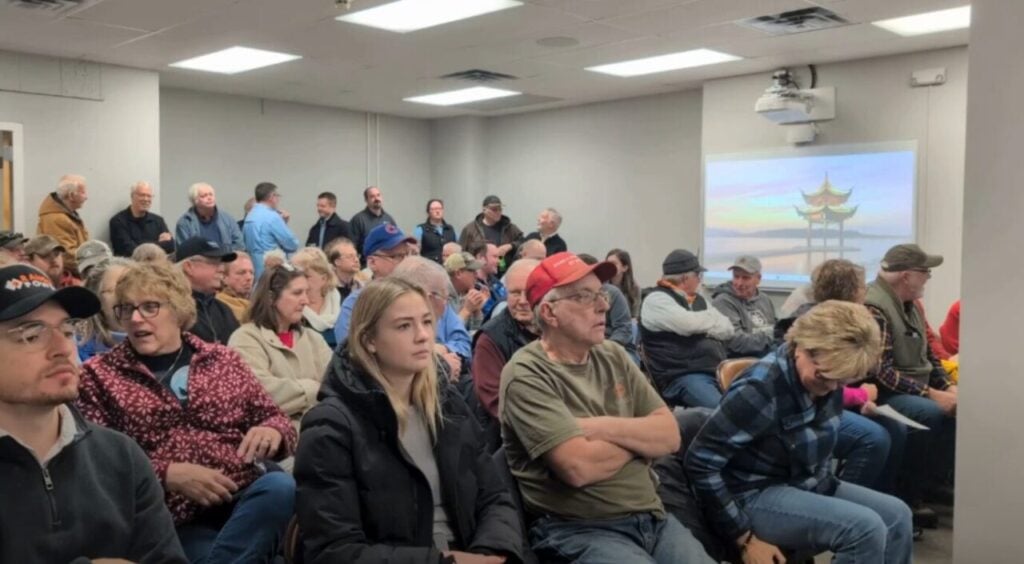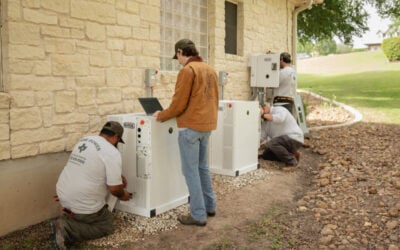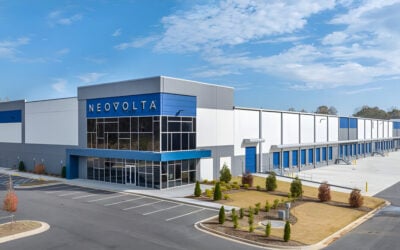
Supervisors in the northern Iowa county of Cerro Gordo have passed an ordinance prohibiting the installation of new utility-scale solar, wind and BESS facilities located on land zoned for agricultural use.
The county’s Board of Supervisors (BoS) voted unanimously to pass the ordinance at a 23 December, 2024 meeting, following months of meetings and public hearings.
Temporary moratorium to prohibit 3,500+ acre solar and BESS project
The series of events leading up to the ordinance started in May 2023, when the BoS at Cerro Gordo enacted a 15-month temporary moratorium on the development of any new utility-scale renewable energy projects across the county. The length of the moratorium was in-part chosen to align with completion of the county’s comprehensive plan.
Officials decided to instate the moratorium after they became aware of Chicago, Illinois-based developer Ranger Power leasing 3,628 acres of land in the City of Clear Lake to develop a utility-scale solar development. The lease was secured through River City Energy, LLC – an Iowa-registered subsidiary owned by Ranger Power.
Try Premium for just $1
- Full premium access for the first month at only $1
- Converts to an annual rate after 30 days unless cancelled
- Cancel anytime during the trial period
Premium Benefits
- Expert industry analysis and interviews
- Digital access to PV Tech Power journal
- Exclusive event discounts
Or get the full Premium subscription right away
Or continue reading this article for free
Although much is unknown about this project, Ranger Power also contemporaneously incorporated another Iowa business subsidiary, River City Energy Storage, LLC, suggesting that the developer intended to pair a BESS with the solar facility in Clear Lake.
Cerro Gordo County has a population of around 42,000, accounting for a little over 1% of Iowa’s 3.2 million.
“Concerning regulations” surrounding permitting of renewable energy projects
During the beginning of 2024, the county’s Planning and Zoning (P&Z) Commission held five public input meetings relating to the development of renewable energy projects within the county that were reported to have been attended by over 300 residents across all the meetings.
In May of this year, following a recommendation from the P&Z commission, the BoS extended the temporary moratorium by another four months to December 2024. This was followed by the publication of a report from the P&Z commission, titled “Concerning Regulations for Industrial (Utility-scale) Wind and Solar and Battery Installations” in June 2024.
After carrying out what it described as a “detailed study” on the use of county land for utility-scale renewable energy developments, the P&Z concluded that wind, solar and BESS installations were not a good use of agricultural land.
The findings and conclusions from the P&Z commission outlined in the report, coupled with input from the public over the past year, culminated in the passing of the ordinance this week.
“Some of the most productive and highest quality soil in the USA and the world”
As all energy storage stakeholders will be aware, the enactment of potential BESS moratoriums have been a huge topic of contention this year, with the majority of these discussions centering around the danger of installing battery facilities in residential areas.
As covered in Energy-Storage.news, officials at San Diego County in California made headlines earlier this year after it voted to adopt new standards on BESS permitting, but stopped short in enacting a full moratorium after months of back and forth discussions.
The general public have also began to take matters into their own hands, with a group of residents located in Van Zandt County, Texas filing a lawsuit against Finland’s Taaleri Energia and the UK’s RES Group over the construction over what they call an “ultra-hazardous” lithium-ion BESS that threatens their safety.
However, unlike in San Diego and Van Zant counties, where the main concern appears to be the potential of BESS fires in residential areas, officials in Cerro Gordo County are more concerned about projects taking up agricultural land. This is the same concern echoed by officials at Skagit County in Washington, who also recently enacted a moratorium on the development of new BESS facilities upon its “irreplaceable” farmland.
Within its recently passed ordinance, Cerro Gordo officials described its farmland as “some of the most productive and highest quality soil in the USA and the world”.
Officials agree with renewables, but not in their own backyard
During the recent BoS meeting, county supervisor Chris Watts outlined a very familiar sentiment echoed by other decision makers across the US, stating that although he believed in renewables, he didn’t believe what was currently happening in Cerro Gordo County was right.
According to the US Energy Information Administration (EIA), wind provided 59% of Iowa’s electricity in 2023, making it a leader in the deployment of renewable energy facilities in the US.
However, Iowa has lagged behind when it comes to renewable dispatchable energy resources, such as BESS, and is still heavily reliant on coal and methane (natural) gas to support its large industrial sector.
To move away from fossil fuels, the state will need to develop more projects with BESS, such as the Grand Junction Solar and Storage project located in Greene County that was approved by the Iowa Utilities Board (IUB) in 2023.





